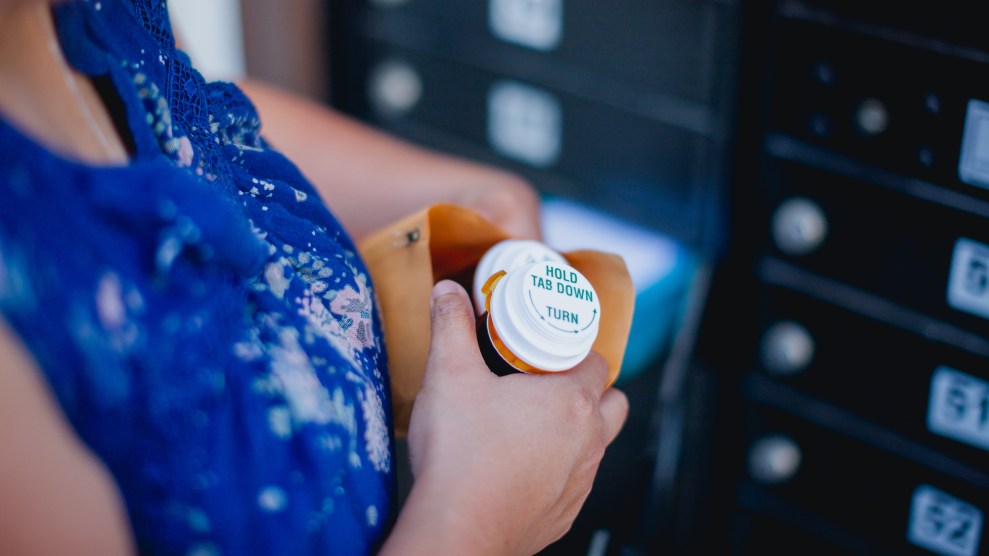
Young tourists shout their opposition to anti-abortion activists from the plaza in front of the U.S. Supreme Court. Chip Somodevilla/Getty
In a major, if temporary, victory for abortion rights advocates, the Supreme Court on Friday granted the Biden administration’s emergency request to pause a lower court ruling challenging the FDA’s approval of the abortion pill mifepristone after a Texas judge suspended it earlier this month. The decision, the high court’s most consequential abortion ruling since overturning Roe v. Wade last summer, will maintain access to the drug, which for over two decades has been widely used because it allows people to obtain abortions safely, effectively, and in the privacy of their own homes.
On April 7, a Trump-appointed judge in Texas, Matthew Kacsmaryk, ruled that the FDA had wrongly approved mifepristone—an unprecedented decision by a federal judge attempting to single-handedly pull a medication from the market. Kacsmaryk’s reasoning relied not only on a shocking lack of science, but also on an outdated, Victorian-era law that prohibits the mailing of “every obscene, lewd, lascivious, indecent, filthy or vile article, matter, thing, device, or substance.” Prior to Kacsmaryk’s ruling, the law, known as the Comstock Act, hadn’t been enforced in half a century. But since the overturning of Roe, anti-abortion activists have seized on the law, named after 1800s anti-sex crusader Anthony Comstock, to reach its end game of destroying abortion access at the federal level. The Biden administration asked the Supreme Court to put the lower court’s ruling on hold while litigation continues: The same day that Kacsmaryk issued his ruling, a federal judge in Washington state issued a ruling, in a different case, upholding access to mifepristone. The manufacturers of the pill have also both sued to keep it on the market.
Friday’s ruling means that access to mifepristone will remain the same, likely for at least several months, while the Fifth Circuit—and, potentially, the Supreme Court—fully considers the government’s appeal of Kacsmaryk’s order. According to legal journalist Chris Geidner, any Supreme Court appeal wouldn’t be heard until next term, which begins in October.
Through the ruling comes as a critical victory for abortion advocates, as my colleague Madison Pauly noted, abortion opponents could still achieve their goal of ending abortion access with the next Republican president. “You would only need a week,” Joanna Grossman, a law professor at Southern Methodist University, told Pauly. Read more on how here.
This post has been updated.
















